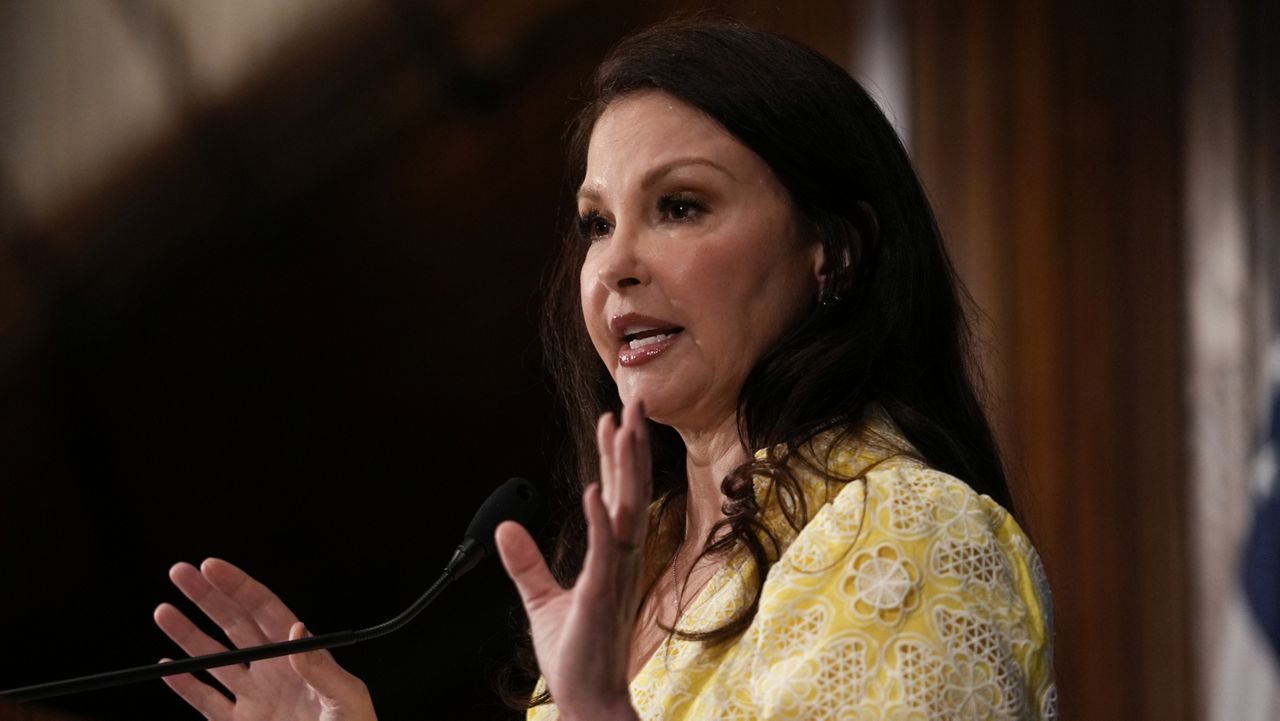If you or someone you know needs help, call or text 988 to reach the Suicide and Crisis Lifeline or live chat at 988lifeline.org.
Calling suicide an urgent and growing public health crisis, the Biden administration released Tuesday the first update to the National Strategy for Suicide Prevention in more than a decade and the first-ever related federal action plan.
What You Need To Know
- The Biden administration released Tuesday the first update to the National Strategy for Suicide Prevention in more than a decade and the first-ever related federal action plan
- Administration officials marked the release with a White House event that included actress Ashley Judd and singer/rapper Aloe Blacc
- The updated strategy issues recommendations related to suicide calls, treatment, crisis services, surveillance, research and health equity in suicide prevention
- More than 49,000 people in the United States died by suicide in 2022, which amounts to one death every 11 minutes
Administration officials marked the release with a White House event that included actress Ashley Judd and singer/rapper Aloe Blacc. Judd’s mother, country music star Naomi Judd, died by suicide in 2022, and Blacc’s friend and collaborator, Avicii, a producer and DJ, took his own life in 2018.
The updated strategy issues recommendations related to suicide calls, treatment, crisis services, surveillance, research and health equity in suicide prevention.
More specifically, the measures include additional support for mobile crisis response teams, more youth suicide prevention activities through programs such as 4-H, improved data partnerships across federal agencies and new resources for suicide prevention on railways.
White House domestic policy adviser Neera Tanden said more than 20 federal agencies helped develop the strategy and that more than 2,000 experts and people with experience with either suicide loss or suicide-related behaviors provided input.
“With this plan and it's call to action to care, connect and collaborate, we commit to creating a world where no one has to experience the devastating impacts of suicide ever again,” second gentleman Doug Emhoff said at Tuesday’s event.
For the first time, the strategy is accompanied by an action plan, which identifies more than 200 actions that will be taken across the federal government over the next three years.
The action plan, for example, calls for evaluating community-based suicide prevention strategies, identifying ways to address substance use/overdose and suicide risk together in a clinical setting, funding a mobile crisis locator for use by 988 crisis centers, and increasing support for survivors of suicide loss and others whose lives have been affected by suicide.
In a fact sheet, the White House said, “We need to move beyond awareness to action in order to address rising suicide rates.”
More than 49,000 people in the United States died by suicide in 2022, which amounts to one death every 11 minutes.
For the first time, the national suicide strategy prioritizes equity after the COVID-19 pandemic exposed a range of inequities, including those related to access to social supports and health care resources.
Suicide levels were disproportionately higher in historically underserved communities from 2020-21 and suicide rates rapidly increased from 2018-21 among Black, Hispanic, Native American and Alaska Native populations, Tanden said.
“This is simply unacceptable,” she said. “Behind each of these figures are individuals we've lost families and communities torn apart by these tragedies. We can and must do more.”
Ashley Judd told the story of her mother, a survivor of childhood and adult sexual violence who suffered from mental illness.
“The disease of mental illness was lying to her and, with great terror, convinced her that it would never get better,” Ashley Judd said.
Ashley Judd said she, too, was molested as a child, which led to depression and a “feeling of not wanting to be here.” She said she sought treatment in 2006.
“I've been in good recovery for 18 years, and I've had a different outcome than my mother, and I carry a message of hope and recovery,” said Ashley Judd, who has starred in movies such as"Double Jeopardy" and "Heat."
Blacc said it’s important for people to recognize that they have the power to help someone who is struggling by simply being available to lend emotional support.
“It's not always easy to know what's going on, but I truly believe that community is the answer,” the "Wake Me Up" singer said. “And the more that we can be in community and communication, the more we can recognize and see and offer our friends and our family members that moment to say, you know what, ‘I need you. I need your help.’”



